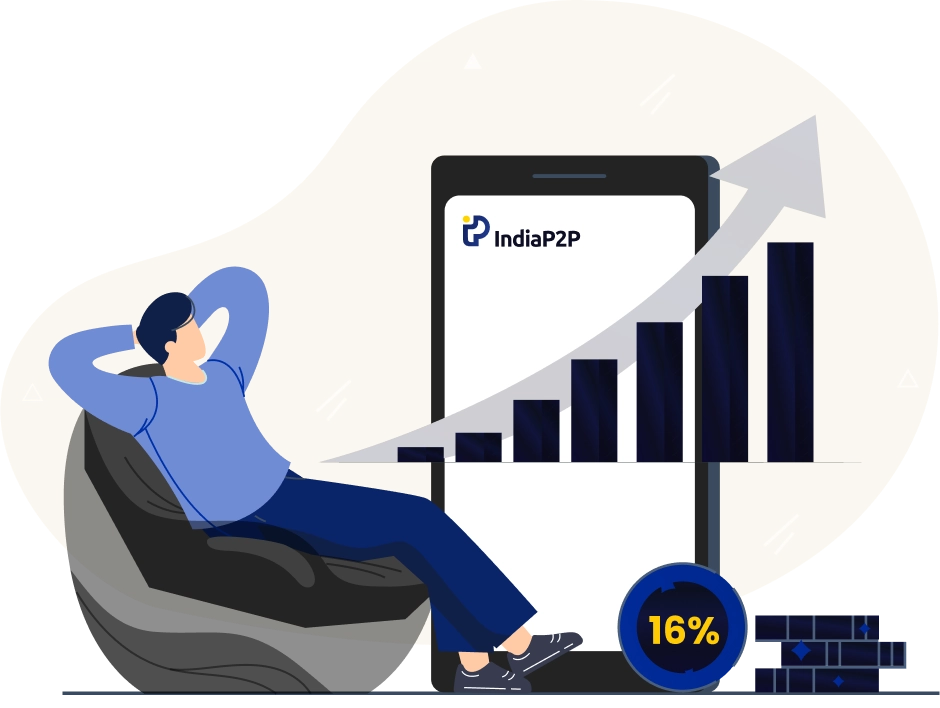What Types of Loans are Available in India? Full Guide

India's financial market offers a wide range of loan options to cater to its diverse population's varied needs. From personal loans to home mortgages, these products help facilitate important purchases or support financial emergencies. In recent years, peer-to-peer lending platforms have become popular alternatives to traditional loans.
Categories of Loans Available in India:
-
Secured Loans
-
Unsecured Loans
-
Specialized Loans
-
Peer-to-Peer Loans

1. Secured Loans:
Secured loans in India require borrowers to provide collateral as security to the lender. Collateral can be in the form of property, shares, fixed deposits, or other assets. These loans offer lower interest rates and longer repayment periods. However, there is a risk of losing the collateral if the borrower fails to repay the loan. Examples of secured loans in India include gold loans, loans against property, loans against shares, and home loans.
- Home loan: A loan used to purchase or build a house, with different types available.
- Top-up loan: Additional funds borrowed for renovating or improving an existing property.
- Balance transfer: Transferring an existing loan to a new lender to take advantage of lower interest rates.
- House construction loan: Loan specifically for constructing a new house.
- Land purchase loan: Loan for buying a plot of land to build a house.
- Loan against property (LAP): Using a residential, commercial, or industrial property as collateral for a loan, typically a percentage of its value.
- Loan against an insurance policy: Borrowing against eligible insurance policies with maturity values, excluding term insurance plans and unit-linked policies.
- Loan against a fixed deposit: Borrowing against a fixed deposit account, with the loan amount typically ranging from 70% to 90% of the deposit's value.
- Loan against shares and mutual funds: Using units of mutual funds or shares as collateral for a loan, with the loan amount based on a percentage of the asset's value.
- Gold loans: Pledging gold coins or jewelry as collateral for short-term loans, typically a percentage of the asset's value. These loans have shorter repayment tenures compared to LAP and home loans.
2. Unsecured Loans:
Unsecured loans are popular in India and do not require any collateral. These loans are based on the borrower's income and expense behavior. Unsecured loans provide flexibility in choosing the repayment period and loan amount, but they come with higher interest rates compared to secured loans. Examples of unsecured loans in India include personal loans, credit card loans, and small business loans.
- Personal Loan: A widely available unsecured loan that can be used for various purposes without the need for collateral.
- Education Loan: Specifically designed for students to cover their educational expenses such as tuition fees, living costs, and other related expenditures.
- Peer-to-Peer (P2P) Lending: Alternative lending platforms that connect borrowers with individual lenders, suitable for those with lower credit scores who may not qualify for traditional bank loans.
- Cash Loan: Unsecured loans that provide quick access to funds for various financial needs, disbursed without requiring collateral.
- Credit Card Loan: Loans are granted against a credit card, offering instant access to cash but often carrying higher interest rates than personal loans. Approval depends on factors like payment history and credit score.
3. Specialized Loans:
India offers specialized loans to cater to the specific needs of individuals and businesses. These types of loans include education loans, home loans, car loans, personal loans, and business loans. Education loans help finance students' education, home loans assist in purchasing or constructing a house, car loans finance vehicle purchases, personal loans cover various personal expenses, and business loans support business operations and growth.
4. Peer-to-Peer Loans:
Peer-to-peer (P2P) loans have gained popularity as an alternative to traditional loans. P2P lending platforms connect borrowers and lenders directly, eliminating intermediaries. These loans do not require collateral and often offer attractive interest rates. They are characterized by direct negotiation of loan terms between borrowers and lenders.
Conclusion:
India's financial market offers different types of loan options categorized into secured, unsecured, specialized, P2P loans, and gold loans. Each category has its own unique features, advantages, and disadvantages. Secured loans require collateral and offer lower interest rates, while unsecured loans do not require collateral but come with higher interest rates. Specialized loans cater to specific needs, P2P loans offer direct borrowing and competitive rates, and gold loans provide quick access to funds. Borrowers should carefully consider their financial situation, repayment capacity, and eligibility criteria before choosing a loan type.




